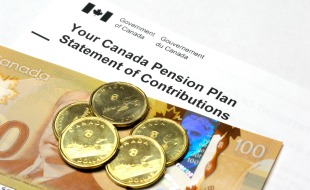
Almost all Canadian middle-class families will see more money coming off their paycheques by the time changes to the Canada Pension Plan take full effect, according to a new report by the Fraser Institute.
The report, released today, includes both the portion of CPP contributions paid by the employer and the employee in its calculations and accounts for the full implementation of the CPP changes by 2025.
Read: Four pension and retirement trends to watch in 2018
“While the employer may make contributions on behalf of employees, this contribution is part of the employee’s overall compensation package,” the report stated. “In addition, empirical evidence suggests that the employer portion of payroll taxes is ultimately paid for by the employee through lower wages. Measuring the full impact of the CPP payroll tax increase on families must account for both the employee and employer portion of the tax.”
The CPP expansion is to be fully in place by 2025, with the first of the seven premium increases to start in January 2019. The study noted that the CPP changes, including contributions by both employers and employees, would see middle-income families contribute $1,680 more each year. Families of all income levels will contribute an additional $1,624, with those earning more than $153,401 seeing an average hike of $2,654 per year.
While the idea of the CPP changes is, in fact, to have workers and employers contribute more in order to boost benefit levels and earnings replacement, the report attempts to counter the federal Liberal government’s claims that it has reduced the tax burden for middle-class families, particularly through its income tax cuts shortly after it took office. The study found that out of a possible 597,000 middle-income families with children, 98.8 per cent would see more coming off their paycheques once CPP premium increases and other federal income tax changes take effect. The tax changes include the elimination of income splitting and other tax credits.
Overall, the report found 92.2 per cent of Canadian families would see more coming off their paycheques.
Read: CPP reforms a ‘convenient time’ to consider more complex DC design
The changes will also affect those at lower income levels. Almost 76 per cent of families earning less than $50,541 will see more coming off their paycheques, according to the Fraser Institute.
“The Trudeau government has repeatedly claimed to have lowered taxes for Canadian families, but in reality, virtually every family in Canada — regardless of income — will have a higher tax bill,” Charles Lammam, director of fiscal studies at the Fraser Institute and co-author of the study, said in a news release.
